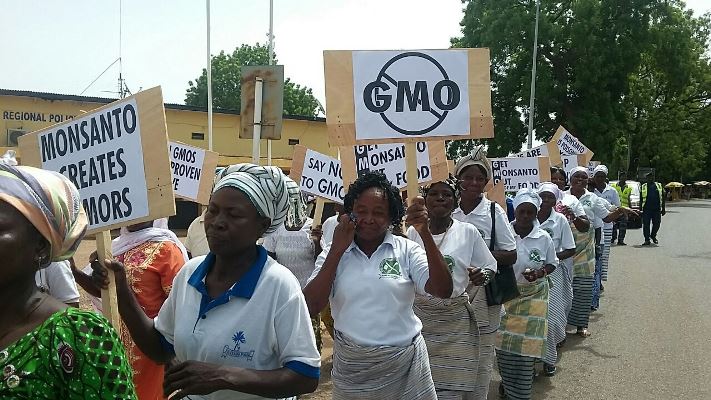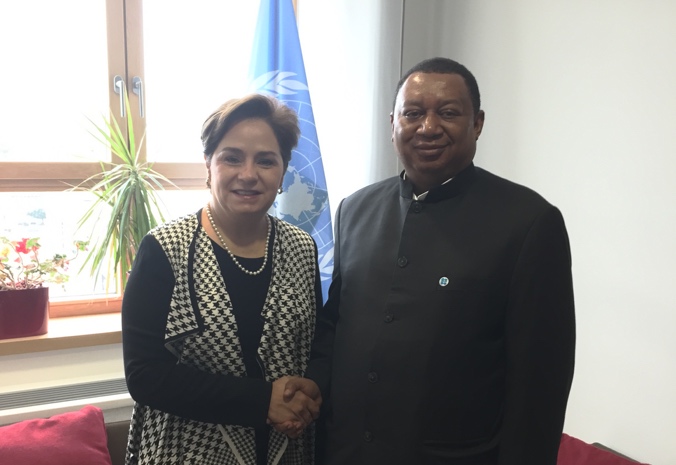
By Nnimmo Bassey
Recently there was a news report that the National Inter-Religious Council (NIREC) cautioned the Nigerian government with regard to permitting Genetically Modified Organisms (GMOs) foods into Nigeria.
That significant report may have escaped many Nigerians. However, the strident denial by the directors general of National Biotechnology Development Agency (NABDA) and National Biosafety Management Agency (NBMA) that they were not members of the NIREC committee on GMOs helped to bring up the report again.
Both officials are right to say that they were not members of the NIREC committee because they were not. I was a member, so I can testify to that. They were invited to share information on GMOs with the committee set up by NIREC. And the director of NBMA did while NABDA was represented by a an assistant director of the agency.
A disclaimer published by Open Forum on Agricultural Biotechnology, Nigeria (OFAB) on behalf of NABDA opens with these words: “On the Daily Trust publication below (NIREC cautions FG against GMOs), the OFAB Nigeria Coordinator, Dr. Rose Gidado whose name appeared as part of the Committee wishes to state that she was called to answer questions at the Committee meeting but was never part of the Meeting not to talk of being part of the approval process of the final report that was produced.” She met with the committee as a representative of NABDA.
A preliminary comment that is of importance at this point is that these two agencies operate like conjoined twins. And that may be so because NBMA is purportedly the brainchild of NABDA. No, that is not my imagination. It is alarming because the NABDA as the name implies is a biotechnology research, development and promotion agency. Their job is to ensure that GMOs are placed on the dining tables of Nigerians whether we want them or not.
The fact of one being the brainchild of the other was revealed at one of the sittings of the committee. The inseparable nature of the two agencies was also illustrated before my eyes in the studios of the Nigerian television Authority (NTA) where their two heads were invited to the Good Morning Show to which I was, unfortunately, also invited.
They would not consider sharing the precious space with someone who would speak against their positions. They apparently do not want Nigerians to hear the other side of the story – about the impacts of GMOs and agro-toxics on the environment, humans and biodiversity. One of the chiefs literally dragged the other out of the studio with the NTA officials pleading with them to stay and participate in the programme, to no avail. That display of disdain to criticism must have shocked the staff of NTA and signified very clearly the sort of leadership we have on biosafety issues in Nigeria.
NABDA and NABMA work hand-in-hand in a manner that is unacceptable. A true regulator would be an impartial umpire on biosafety and GMO issues. In his rebuttal to the news report that erroneously stated that the two biotech leaders were part of NIREC, the head of NBMA stated that he was assuring Nigerians that his agency will supervise the safe deployment of GMOs in Nigeria. First, he takes the introduction of GMOs into Nigeria as a given.
Why would a biosafety regulator consider himself as a supervisor of GMOs? Can we tolerate a referee, in a soccer match, who celebrates whenever one side scores a goal? Secondly, when he talks about the introduction of GMOs he used a militaristic terminology, deployment, probably signifying that the battle lines are drawn against Nigerians who are suspicious of any GMO hemlock.
It makes sense to see that it was patently wrong to have a biotech promotion agency operating in Nigeria, with tax payers’ money, in a situation where there was no biosafety law in place. So, they had to cook up something. And that is what we have. A NBMA whose board is populated by GMO promoters, including NABDA. This murky situation gives us a spectacular template for conflict of interest in the regulation of GMOs in Nigeria. And NABDA did not waste any moment in putting its insider placement in NBDA to work. How? They teamed up with Monsanto to apply for field trials of two GMO maize events in Nigeria and promptly approved the application.
However, when NABDA blames the NIREC committee of bias and in another breath claims that the NIREC committee endorses GMOs, that is a figment of the agency’s imagination. It simply is not true. The committee, made up of seasoned academics and religious leaders, raised questions over GMOs and did not recommend it as a way forward for Nigeria. With the attitude of brooking no dissent, it was curious to hear the chief of NABDA accuse the NIREC committee of bias, because, according to her, the committee did not have GMO promoters on it.
The committee was at pains explaining to two agencies that, in carrying out their work, they must understand that the critical baseline is the interest of Nigerians and our environment and not that of any commercial or political interest- no matter how powerful.
The two agencies could not convince the expert committee that they had enough tools to adequately carry out their tasks. Among other things, the committee also saw that NABDA was functioning more as a GMO advocacy agency rather than engaging in useful research, while the Biosafety Management Act itself requires urgent radical review.











